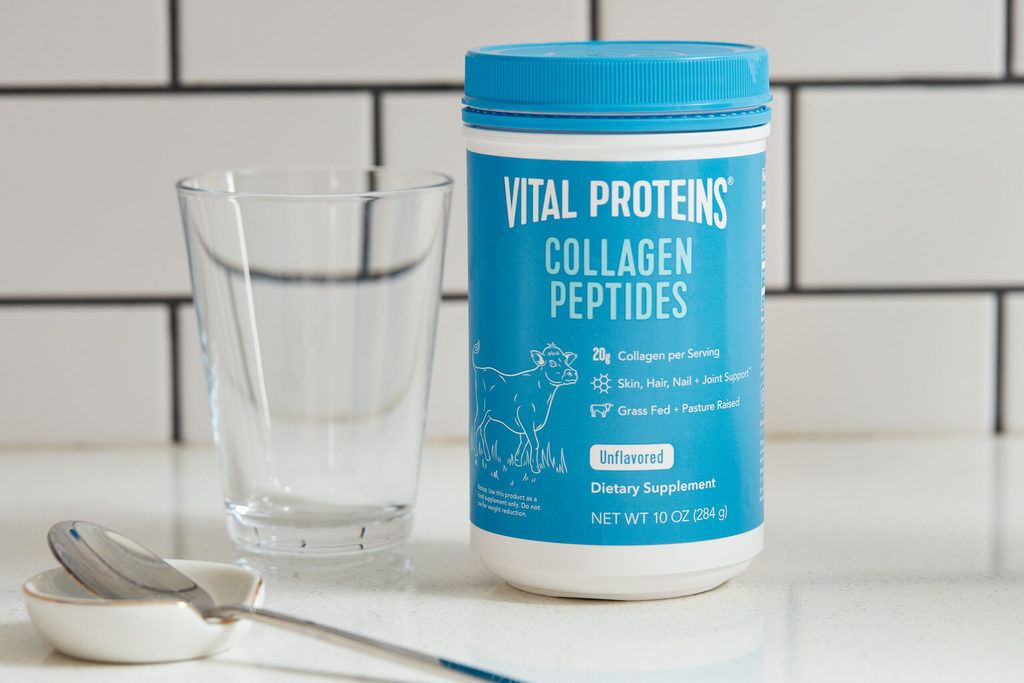You may have noticed collagen products popping up all over the place lately from your social media feeds to your local grocery store. But what exactly is collagen and how does collagen help with acne…if at all? Before we go ahead and answer that question, it’s important to know what collagen is, what it does for the skin, and what these new collagen products actually do (or don’t do).
What is Collagen?

Collagen is a protein that is found in the connective tissue of animals. It is the most abundant protein in the body, and it plays an important role in the structure and function of the skin, bones, and joints. collagen is responsible for the strength and elasticity of the skin, and it helps to keep the skin hydrated. collagen also plays a role in wound healing. When collagen is applied to the skin, it can help to reduce wrinkles and promote collagen production. As we age, our bodies produce less collagen, which can lead to wrinkles and other signs of aging. By using collagen-based products, we can help to reduce these effects and keep our skin looking young and healthy.
Collagen supplements are often promoted as a way to reduce the signs of aging and improve overall skin health. collagen peptides are the main active ingredient in these supplements. They are small fragments of collagen that can be absorbed by the body. collagen supplements are usually taken orally in the form of capsules or powder.
There is some evidence that collagen supplements may improve skin elasticity and hydration. However, most of these studies have been small and not well-designed. More research is needed to determine whether collagen supplements are truly effective for improving skin health.
How Does Collagen Help With Acne?
Collagen is a protein that is found in the skin, and it plays an important role in keeping the skin healthy. collagen helps to keep the skin hydrated, and it also helps to protect the skin from damage. Collagen levels naturally decline as we age, which can lead to dryness, wrinkles, and other signs of aging. However, collagen levels can also be affected by lifestyle choices, such as smoking and sun exposure.
Many people believe that collagen can help to improve the appearance of acne, by reducing inflammation and helping to repair damaged skin. There is some scientific evidence to support this claim, but more research is needed. In the meantime, collagen-based skin care products may be worth considering for those who are looking for a natural way to improve the health of their skin.
Although there are no supported scientific claims that collagen CAN in fact help those with acne prone skin, it’s worth nothing that every person is different and every skin type is different. Collagen supplements and/or products may help some, but it may not help others. But, if you suffer from acne prone skin, it’s definitely worth trying as collagen can do a lot more good than harm. If nothing at all, collagen can help plump the skin and moisturize.
How do Collagen Supplements Work to Improve Skin Appearance and Texture?
Collagen is a protein that plays an important role in the structure of the skin. It helps to keep the skin firm and elastic, and it also helps to repair damage. As we age, collagen production decreases, which can lead to wrinkles and other signs of aging. Collagen supplements are designed to help increase collagen levels in the body, providing the skin with the nutrients it needs to stay healthy and youthful.
There is some evidence that collagen supplements can help improve the appearance of the skin. One study found that collagen supplementation improved skin elasticity and moisture levels in women aged 35-55 (1). Another study found that collagen supplementation reduced the appearance of wrinkles (2). However, more research is needed to confirm these results.
Collagen supplements may also help to improve acne. One study found that collagen supplementation reduced the number of acne lesions in women aged 25-35 (3). However, more research is needed to confirm these results. If you’re considering taking a collagen supplement, it’s important to speak with your doctor first. Supplements can interact with medications and may not be right for everyone.
